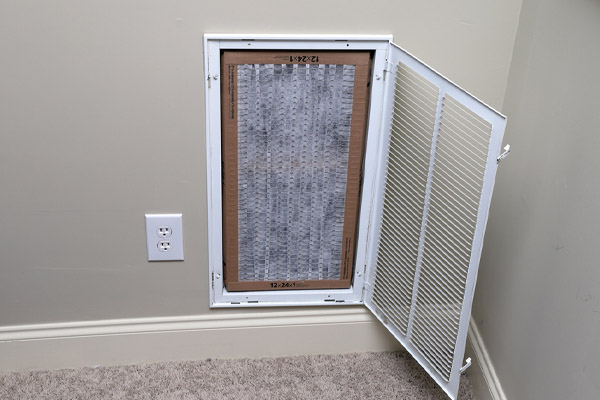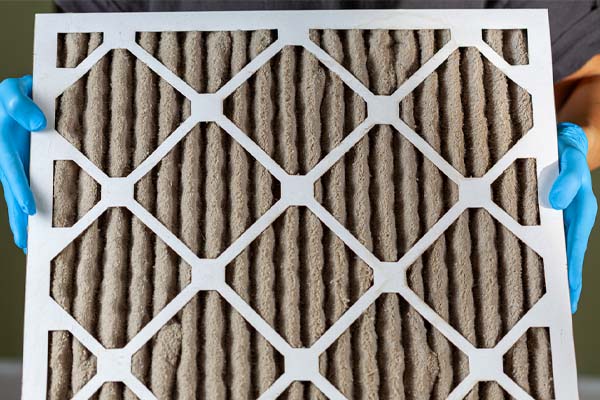What Is A MERV Rating?

Pollutants are present in every home. The unwanted air particles may be too small to see but their negative effects can definitely be felt. Families that are concerned about indoor air quality should make it a point to replace their HVAC filters regularly. Although some can follow the manufacturer’s recommended schedule, it is best to check monthly. Some homes will require a more frequent HVAC air filter replacement than what a manufacturer recommends. Also, they should get filters that are compatible with their system and their household needs. Check the filter MERV rating to find the best match. In this article, we discuss an important factor to consider when purchasing HVAC air filters – the MERV rating.
What Is A MERV Rating?
Contents
- 1 What Is A MERV Rating?
- 1.1 How MERV Ratings Work
- 1.2 How Is MERV Rating Determined?
- 1.3 MERV & Your Indoor Air Quality
- 1.4 Your Energy Use & MERV Ratings
- 1.5 How Your HVAC Air Filter Impacts The Condition of Your HVAC System
- 1.6 Should I Buy Filters With High MERV Ratings?
- 1.7 What MERV Rating Should My Filter Have?
- 1.8 Conclusion
- 2 Call McAllister Energy For Superior HVAC Solutions
Shopping for air filters can be confusing if you have never done it before. Virtually all products will claim to be the best. If you do your homework, then you will quickly figure out which ones are way off the mark. Try to understand the specifications and get a feel for what the numbers mean. For example, you might encounter the term “MERV” which stands for the Minimum Efficiency Reporting Value. This is an important indicator of an air filter’s ability to catch undesirable particles. A higher MERV rating means better filtration capacity.
How MERV Ratings Work

The MERV rating system goes from 1 to 20. Although you would generally want to go higher, some applications will require a MERV rating that is in the middle of the scale. For example, demanding environments such as cleanrooms, hospitals, and nuclear power plants will often use air filters rated at MERV 16 to 20. As for most homes, the filters are typically rated from MERV 5 to 13. Anything below MERV 5 will be insufficient to maintain good indoor air quality. Anything above MERV 13 might compromise residential HVAC system performance.
How Is MERV Rating Determined?
Filters undergo rigorous tests to determine their MERV rating. The process features multiple particles in three different size ranges:
- E1 is 0.3 to 1.0 microns
- E2 is 1.0 to 3.0 microns
- E3 is 3.0 to 10 microns
These are invisible to the human eye since we cannot identify things smaller than 40 microns. For comparison, human hair is roughly 50 microns in diameter. Fortunately, sensitive laboratory equipment can detect all of them. The tiny particles are sprayed through the filters and counted afterward. MERV is based on the worst test score. After all, it is meant to measure the “minimum efficiency” of the product. To qualify as a MERV 16 filter, a product must capture 95% or more of the particles.
MERV & Your Indoor Air Quality
Indoor air quality has a massive effect on the health and comfort of your family. If allergic reactions are frequent, then consider switching to a filter with a higher MERV score. This should be able to remove more pollutants in the air, leading to a reduction of common allergy symptoms. People will complain less about fatigue, headaches, eye irritation, rashes, sore throat, persistent sneezing, and runny nose. The filter upgrade can also protect the home from damage due to dust and bacteria. Bouts of illness will be less frequent and contagions can be avoided. If someone in the house has a weak immune system, then a high-MERV filter can be extremely helpful.
Your Energy Use & MERV Ratings
Air filters need smaller openings to catch more airborne particles. As the openings shrink in size, it becomes more difficult even for air to pass through. The heating and cooling system will need to consume a greater amount of energy to perform well. That is why it isn’t advisable to go for MERV 20 in homes that are not built to handle this level of filtration. Energy bills will go up and HVAC systems might break down prematurely unless adjustments are made. Residential air filters tend to hover between MERV 8 and 13. These are good enough to maintain decent air quality without drastically pushing energy bills up. If you question which type of HVAC filter works best for your home, be sure to consult with an HVAC contractor.
How Your HVAC Air Filter Impacts The Condition of Your HVAC System

Every forced-air heating and cooling system will have a recommended air filter MERV rating. Homeowners should stick closely to the recommended values to prevent undesirable complications. Filters with low ratings may be cheaper but they can cause expensive system troubles down the road. These air filters will not have enough power to catch pollutants. Dust and bacteria will build up in the ducts. System efficiency will plummet while maintenance costs will rise. On the other hand, going above the recommended rating will decrease airflow, hasten wear, and shorten system lifespan.
Should I Buy Filters With High MERV Ratings?
People will often gravitate to higher ratings when it comes to product reviews, hotel designations, and other metrics. This generally leads to better experiences but it isn’t universally true. Higher is not always better when it comes to MERV ratings. While high-MERV filters might be better at blocking pet dander, bacteria, and pollen, they will also be preventing air from moving at ideal speeds across the system. Poor airflow can reduce indoor comfort, increase energy consumption, and raise monthly bills. Compatibility is important so be sure to match your system with suitable air filters.
What MERV Rating Should My Filter Have?
Every HVAC system is unique so it is difficult to make exact recommendations. It would be best to refer to the owner’s manual regarding the matter. Most homes should do fine with a filter rated between MERV 8 and 13. These are capable of removing the majority of unwanted particles without becoming a burden on the system. With everything working well together, you can get better results across time. In homes where there are few occupants and no pets, MERV 8 should suffice. With more people and a few pets, MERV 11 would be more ideal. If there are individuals with a weak immune system, then a MERV 13 filter might be necessary for health and well-being.
Conclusion
The MERV rating is an essential consideration when choosing air filters. It indicates the worst-case performance when confronted with microscopic impurities. Low ratings are undesirable since point to inadequate air cleaning. High ratings are not necessarily ideal since these can have negative effects on incompatible systems. Most homes do well with mid-range filters between MERV 8 and 13. The best choice will depend on each unique household situation.
Call McAllister Energy For Superior HVAC Solutions

McAllister Energy offers high-quality HVAC services in Camden County, New Jersey. We hire only the best professionally certified technicians who conduct superior heating and cooling services. Some of our HVAC services include indoor air quality solutions, HVAC maintenance, heating and cooling installations, repairs, ductless systems, energy audits, and much more. All our techs provide accurate HVAC services on time, every time.
Our company guarantees affordable heating and cooling service rates. Our maintenance services can increase your home’s comfort, energy efficiency, and cost-effectiveness. We can also provide you with a highly energy-efficient HVAC replacement system that fits your budget. Your satisfaction is important to us, so all our work comes with a guarantee. Book a service appointment with McAllister Energy today. We provide free, in-home estimates.
You can click here to contact us now or call us at (856) 665-4545 to find out more!